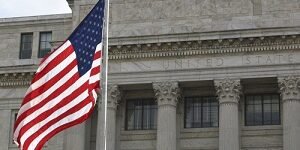The Congress at Work series of articles is designed to give you a glimpse of various types of legislation currently under consideration. While either the Senate or the House of Representatives may initiate a bill proposal, be aware that many bills never become law; they may never make it out of committee, be blocked by a Senate filibuster, be delayed, lack sufficient votes, never be agreed upon by the two houses, or be vetoed by the president.
Consolidated Appropriations Act, 2017 (H.R. 244) – Negotiated as a bipartisan effort, this $1.1 trillion spending bill appropriates money to keep the federal government running through the end of the fiscal year (Sept. 30, 2017). Notably, the Act authorizes $1.5 billion for increased border security and work on the existing border infrastructure (but not the new wall), boosts defense spending by $15 billion, and retains money for “sanctuary cities” that do not comply with federal immigration laws as well as funding for Planned Parenthood. The bill also rejects President Trump’s request to eliminate money for federal arts programs by allocating $150 million each to the National Endowment for the Arts and the National Endowment for the Humanities. The bill was signed into law by the President on May 5.
An Act to repeal the rule issued by the Federal Highway Administration and the Federal Transit Administration entitled “Metropolitan Planning Organization Coordination and Planning Area Reform” (S. 496) – Sponsored by Sen. Tammy Duckworth (D-IL), this bill rolls back legislation designed to promote more effective regional planning by merging, adjusting boundaries or, in effect, producing a single, unified set of plans to guide transportation investments. The bill was signed into law by the President on May 12.
U.S. Wants to Compete for a World Expo Act (H.R. 534) – The United States has not been an active member of the Bureau of International Expositions (BIE) – the organization responsible for governing World Fairs and International Expositions – since 2001. This bill requires the Secretary of State to take such actions necessary for the United States to rejoin the BIE in order to petition to host the World Expo. Countries that host the Expo benefit from economic growth of the region surrounding the exposition through domestic job creation, global branding and tourism. Sponsored by Rep. Tom Emmer (R-MN), the bill was introduced on Jan. 13 and signed into law by the President on May 8.
Joint Resolution disapproving the rule submitted by the Department of Labor relating to savings arrangements established by States for non-governmental employees (H.J. Res. 66) – Sponsored by Rep. Tim Walberg (R-MI), this bill nullifies a previous final rule requiring states to comply with the fiduciary oversight and other protections of ERISA that ensured worker savings were available to provide a secure retirement. It was introduced on Feb. 7, passed by Congress on May 3 and was signed on May 17 by the President.
Modernizing Government Travel Act (H.R. 274) – Sponsored by Rep. Seth Moulton (D-MA), this bill requires the General Services Administration to implement regulations allowing federal employees to use alternative transportation options such as Uber, Lyft and bike-share for official travel. It was introduced on Jan. 4, passed by Congress on May 2 and enacted by the President on May 16.
Recent Presidential Executive Orders and Memorandums (totaling 37 as of April 20):
- An order empowering the Treasury Secretary to move forward with tax reform and end portions of the Dodd-Frank financial legislation.
- A memo ordering an investigation into whether foreign steel is hurting national security.
- An order directing federal agencies to review the use of the H-1B visa program.
- An order requesting the Commerce Department to report on the factors behind the trade deficit.
- An order requesting the Commerce Department to increase collection of duties on imports.
- An order establishing the President’s Commission on Combating Drug Addiction and the Opioid Crisis.
- An order revoking Obama-era executive orders on federal contracting.
- An order directing a top-to-bottom audit of the Executive Branch.
- A revised order suspending the refugee program and entry to the United States for travelers from several primarily Muslim countries and suspending refugee entries for 120 days. The original order was revoked.
- An order moving the HBCU (Historically Black College and Universities) offices back from the Department of Education to the White House.
- Three orders establishing three Department of Justice task forces to fight drug cartels, reduce violent crime, and reduce attacks against police.
- A memorandum instructing the Labor Department to delay implementing an Obama rule requiring financial professionals who are giving advice on retirement, and who charge commissions, to put their clients’ interests first.

